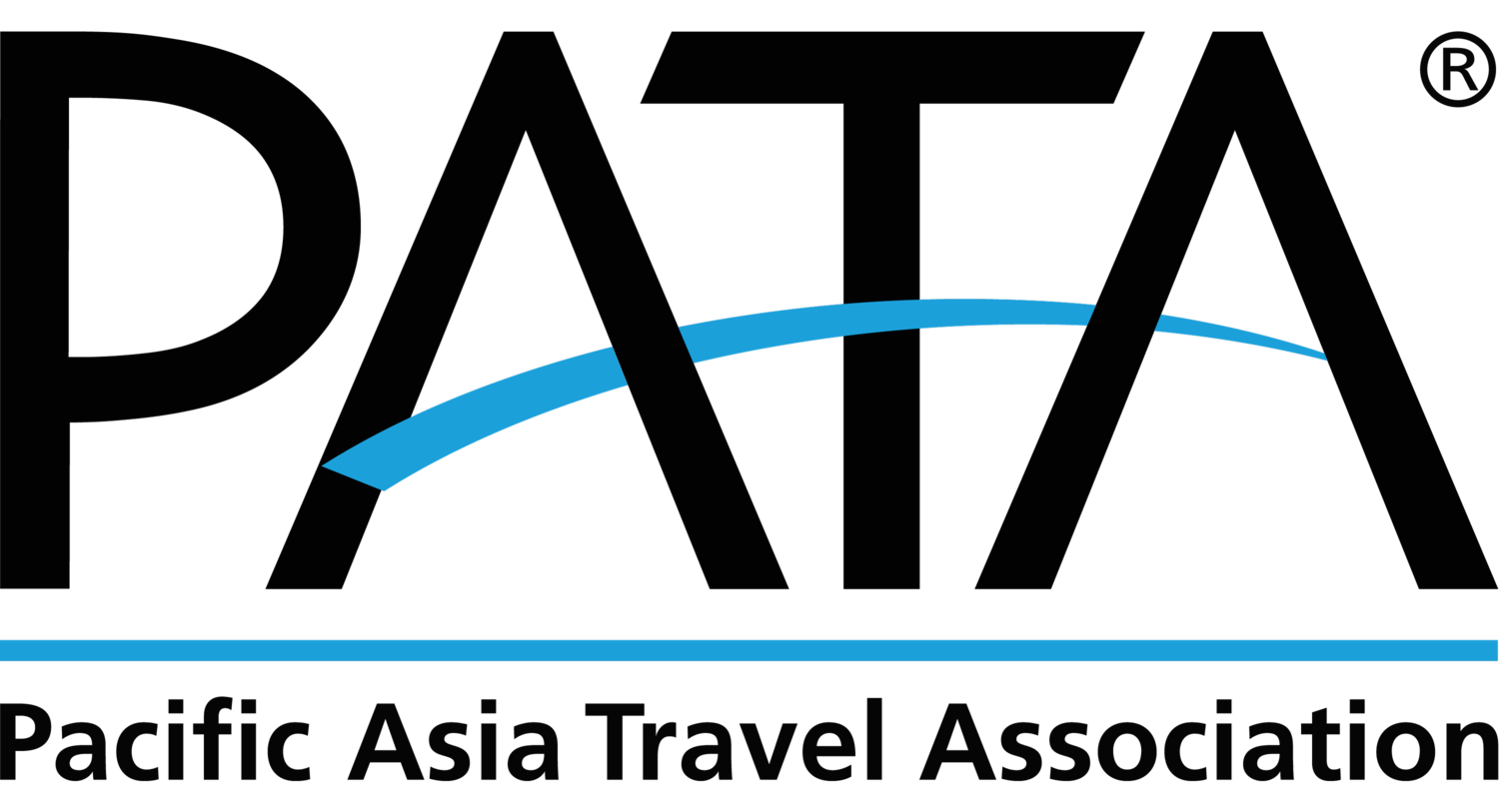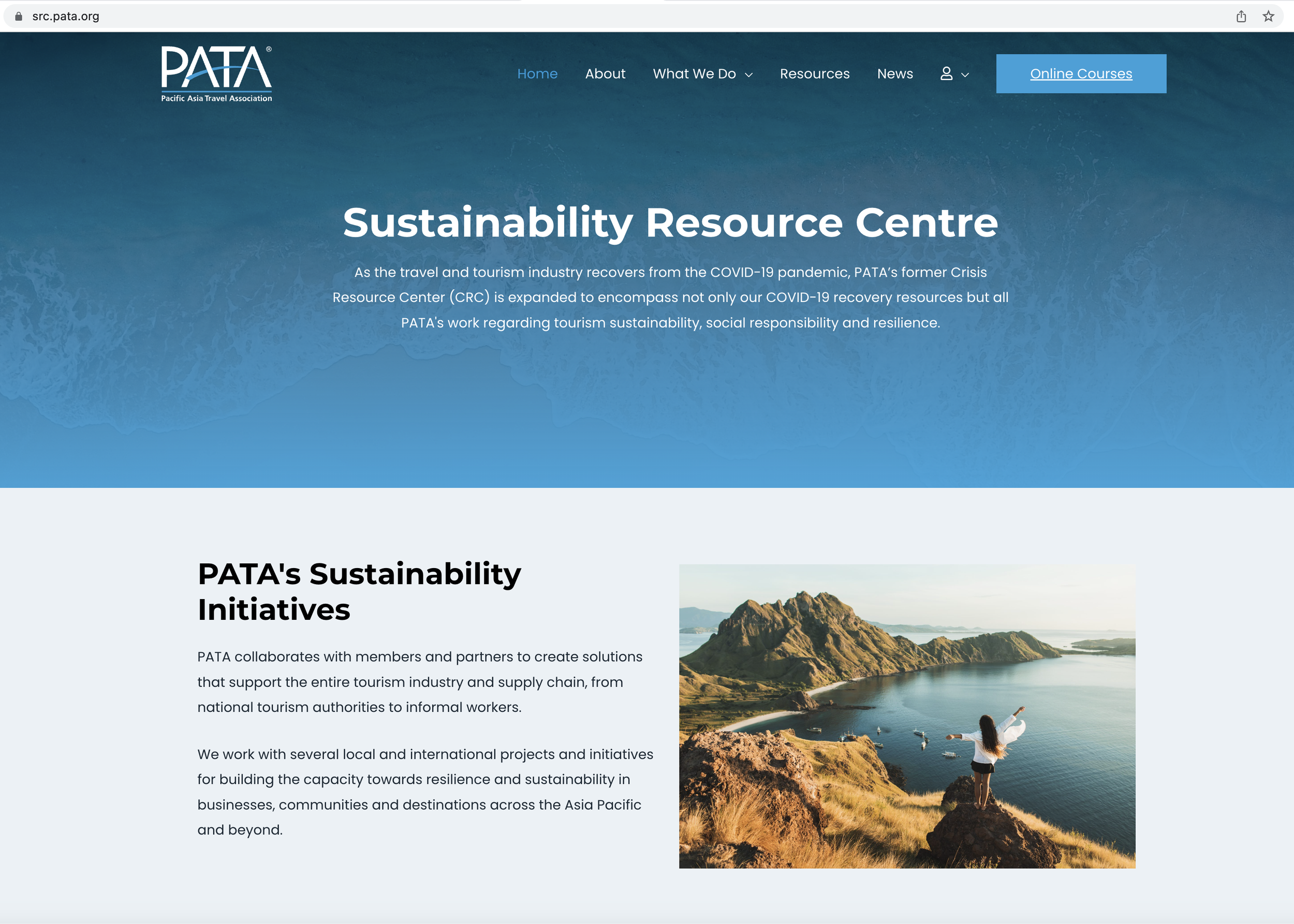New Online Learning Modules Available: Finance and Digital Skills for Tourism SMEs
In October 2022, PATA began collaborating with Visa to expand the Tourism Destination Resilience (TDR) programme to provide tourism SMEs with further knowledge and skills on business finances and digital competency. Through this collaboration, PATA has developed two new online learning modules, Financial Skills for Tourism SMEs and Digital Skills for Tourism SMEs, which are currently available open-sourced at the SRC (Sustainability Resource Centre) platform. Learn more in this blog.
In 2021, PATA launched the Tourism Destination Resilience (TDR) Programme as a response to the COVID-19 pandemic to assist in the rapid, robust and responsible reopening of international tourism by building the capacity of Asia Pacific destinations towards resilience and sustainability. As the tourism sector recovers, SMEs also need to build resilience to become better prepared for potential crises and future challenges. Therefore, whereas the previous focus of TDR was to increase resilience at the destination level by providing online learning modules and in-person capacity building to National Tourism Organisations (NTOs) and Destination Management Organisations (DMOs), PATA is now specifically targeting tourism SMEs.
With the support and expertise of Visa and the Practical Business Skills initiative, PATA has developed two new modules to improve tourism businesses' financial literacy and digital competency. The modules Finance Skills for Tourism SMEs and Digital Skills for Tourism SMEs are now available open-sourced on the SRC (Sustainability Resource Centre) platform.
SRC was previously known as CRC (Crisis Resource Centre). This platform was created in 2020 to support tourism destinations, businesses and communities with resources and toolkits to help them effectively respond to the COVID-19 pandemic and get started with their recovery efforts. Today, as the tourism industry continues to recover from COVID-19, these resources remain relevant as they are applicable to any type of crisis that the industry may face. Nevertheless, PATA saw the need to change the focus of the CRC platform to encompass not only crisis response but also resilience and sustainability.
The new online learning modules for tourism SMEs are part of PATA's initiative to move forward from crisis recovery to building resilience. SMEs make up 80% of all tourism businesses, but, at the same time, 20% of them fail within the first year of operations and only half manage to go beyond the five-year mark. These numbers become ever harsher in times of crisis, as seen during COVID-19. Our goal, therefore, is to empower tourism SMEs with the necessary knowledge and skills to effectively manage their finances and become more digitally competent, to better adapt to the post-pandemic tourism era.
SMEs create jobs, foster innovation and drive economic growth in destinations around the world, but many lack or struggle with financial management skills. This can lead to cash flow problems, insufficient funding and, ultimately, business failure. To help bridge this gap, the Finance Skills for Tourism SMEs module covers important topics to increase businesses' financial knowledge, including:
| Business Financial Basics | Financial Management | Risk Management | Financial Benefits of Sustainability |
|---|---|---|---|
| Budgeting Saving | Payment options | Managing internal and external risks | Saving costs with sustainability |
| Record-keeping & Accounting | Banking services | Emergency fund | Tax incentives |
| Funding & Financing | Cash flow & Profit and loss | Disaster preparedness | Increasing competitive advantage |
The learning outcomes of this module include being able to:
Identify expenses, cash flow requirements and manage short and long-term finances to achieve business goals;
Make well-informed financial decisions on payment options and banking services, as well as effectively manage expenses and financial statements;
Understand what types of risk businesses may face and learn how to identify and manage these risks, reducing the likelihood of financial losses; and
Adopt and adapt sustainable strategies to not only gain a competitive market advantage but also reduce costs and receive tax incentives.
Digital Skills for Tourism SMEs
Tourism post-COVID-19 has become more digital than ever. The industry increasingly relies on technology, and to stay competitive, tourism SMEs must adopt and make use of digital tools and platforms to reach customers, manage bookings and payments, and maintain operations. But it is also important to know how to stay safe and keep both businesses' and customers' data secure.
With this in mind, the Digital Skills for Tourism SMEs module covers the following topics to increase businesses' digital capacity:
| Taking Your Business Digital | Digital Marketing | Digital & Online Payments | Cybersecurity |
|---|---|---|---|
| Going paperless | Online presence | Card technologies | Understanding risks |
| Digital Invoice system | Website & Social Media | Digital device payments | Securing website |
| Accounting software | Google My Business | Setting up online payments | Phishing scams |
| Digital POS system | Review websites | Frauds and identity theft | |
| Online budgeting | Digital Advertising & Email Marketing | Secure online/mobile banking |
The learning outcomes of this module include being able to:
Identify which areas of the business can be streamlined through digital processes for greater efficiency and cost reduction;
Utilise several digital media to promote the business and know how to manage positive and negative online reviews;
Select the most appropriate digital and online payment methods for the business to stay competitive in the post-COVID-19 era; and
Identify the most common cyber threats and know to protect the business's and customers' data from fraud and cyber attacks.
To access the Finance Skills and Digital Skills modules and start learning, it is necessary to first register at the SRC. For those who have already registered before on the CRC platform, they only need to login with the same email and password to be able to access all online courses. To change a password, go here.
The Finance Skills for Tourism SMEs and Digital Skills for Tourism SMEs modules are now available in English, but will soon be published in Khmer, Bahasa Indonesia, Vietnamese, Thai and Mandarin Chinese. Participants receive a certificate after completing the modules and passing the final quiz.
Apart from the online modules, PATA and Visa will also conduct in-person training for tourism SMEs, which will take place in July 2023 in Cambodia, Indonesia, Vietnam and the Philippines. Stay tuned to know more!
Do you have any questions about the Tourism Destination Resilience (TDR) programme or the new Finance and Digital Skills modules for tourism SMEs? Get in touch with us at ssr@pata.org. Also, don't miss PATA's newsletters for updates on this and other sustainability and resilience initiatives.





